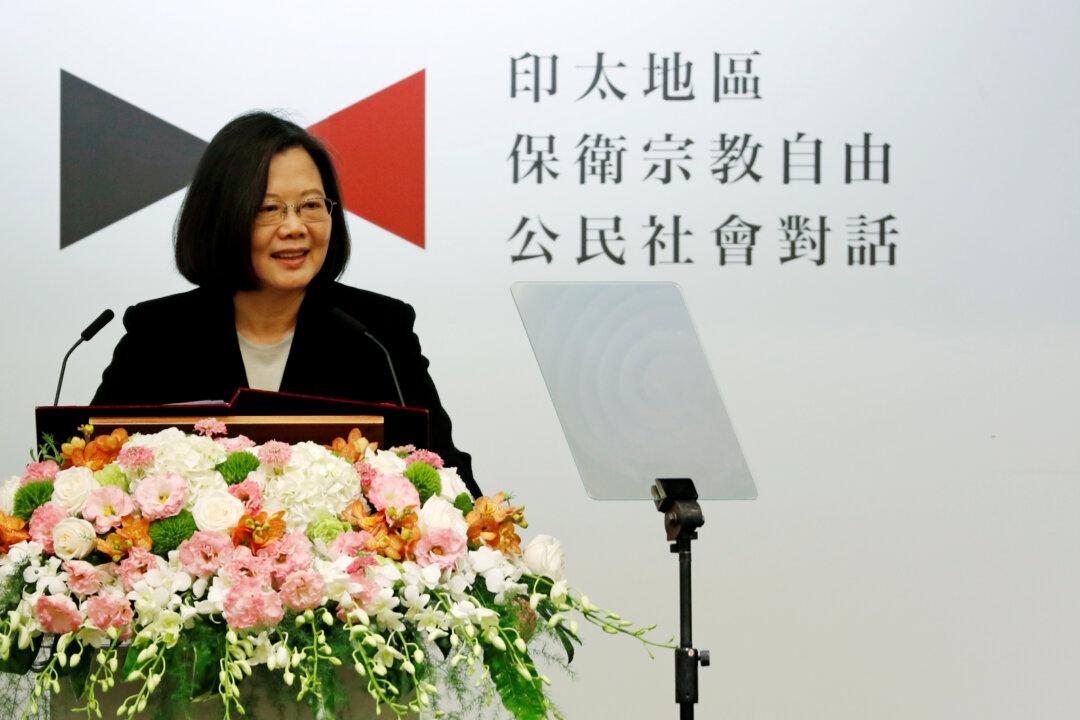TAIPEI— Taiwan’s president will visit three diplomatic allies in the Pacific next week and could make a stopover in U.S. territory, potentially angering China as it seeks to snatch away the self-ruled island’s few remaining diplomatic friends.
Last year, China persuaded the Dominican Republic, Burkina Faso, and El Salvador to forge relations with Beijing, leaving a dwindling number of governments that have formal ties with Taipei.





